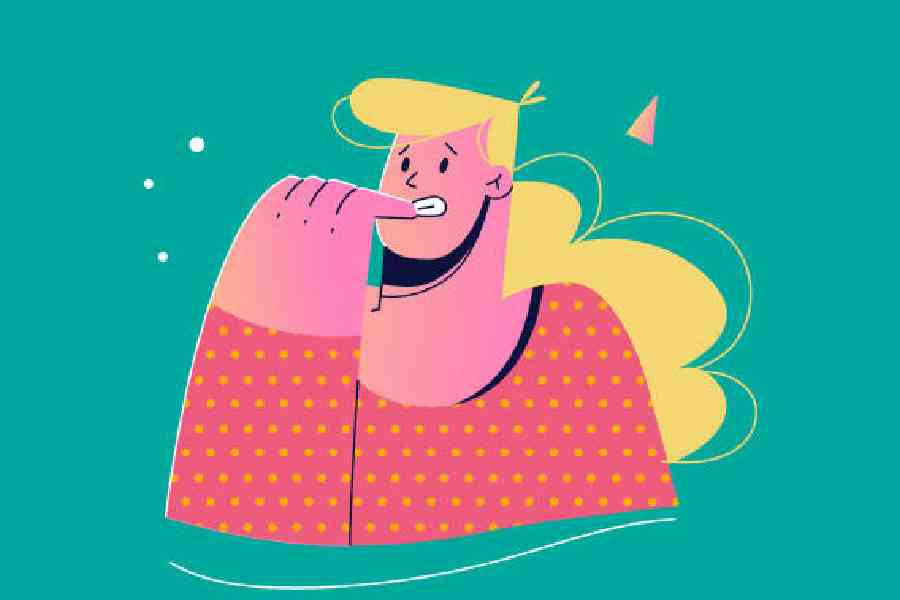Biting the nails while standing around and bored or concentrating on something else is called onychophagy or onychophagia. It is a very common problem. It is a habit and behaviour which starts around the age of three years. Around 20 per cent of children bite their nails all the time while 45 per cent of teenagers continue with this habit. Some eventually stop when they become adults, but many do not. They continue often in secret. Sometimes, the parents also bite their nails so that the behaviour may be learnt by observation and exposure. Some teenagers who did not have the habit as children may suddenly start nail-biting.
Sometimes children who suck their thumbs give up that habit. The relief and happiness the parents feel is often short-lived as they switch to nail-biting as they grow older. This habit is more difficult to stop.
Many children outgrow a nail-biting habit as they mature. Some, however, switch to other nervous habits. They may pull out their hair. Sometimes they, unknowingly and effortlessly, remove large tufts of hair and have bald patches. They may scratch or pick at their skin. The skin becomes thickened, darker in colour and sometimes excoriated and infected, damaging it.
Nail-biting is a coping mechanism, as the person is unable to tackle feelings of nervousness, boredom, loneliness, tension and other emotional problems.
In thumb sucking, there is a favourite finger or thumb which is sucked. In nail-biting, all 10 fingers from both hands are equally bitten. As a result, the nails become short and appear to go into the nail bed. The nails become brittle and uneven. The cuticles become red, inflamed and painful. The hands appear ugly. The person may become self-conscious and try to hide the hands. As the nails get continuously bitten, eventually, there is not much left to bite, the person may start biting the skin around the nails. This presents a very unappealing appearance. People are likely to pass unkind comments.
The mouth is full of viruses and bacteria. Saliva from the mouth transports these microorganisms to the fingertips and nail beds. The fingers remain perpetually moist so that not only bacterial but fungal infections can also occur. These are more difficult to eradicate.
If the nails are tough, biting can cause the teeth to become damaged and chipped. Mouth infections can occur. Nails are not digested if they are swallowed. They can irritate the stomach and intestines. They can carry bacteria into the stomach and intestine and cause infections.
No matter when or why nail biting started, it can be a problematic habit that will be difficult to break. Also, nail biting can reduce self-confidence and
it can impact your professional career. It can make hands look ugly. Teeth too can get chipped. There can be recurrent local infections in the skin around the nail that require antibiotics or anti-fungal medication.
You can try
Children need to be enrolled in sports, dance or martial arts classes. This physical activity will take their mind away from nail-biting, reduce nervousness and build self-confidence. They may not want to bite nails in front of other competitors.
Parents need to encourage and support children to break the habit of nail biting when they are young. Remember humiliation and punishment do not work for thumb-sucking or nail-biting.
The writer has a family practice at Vellore and is the author of Staying Healthy in Modern India. If you haee any questions on health issues please write to yourhealthgm@yahoo.co.in











